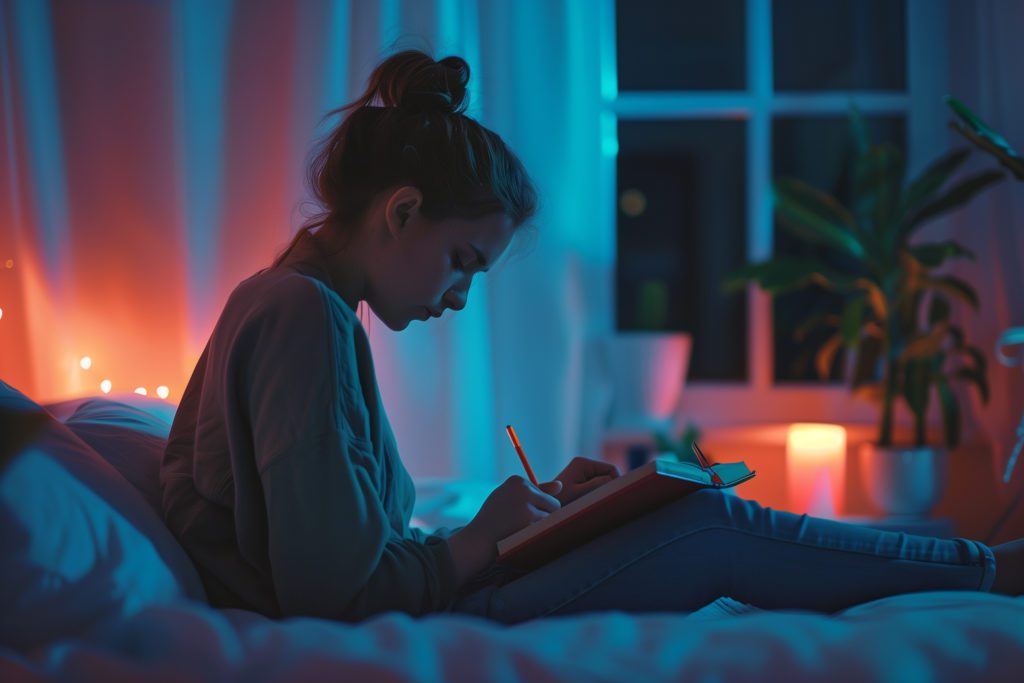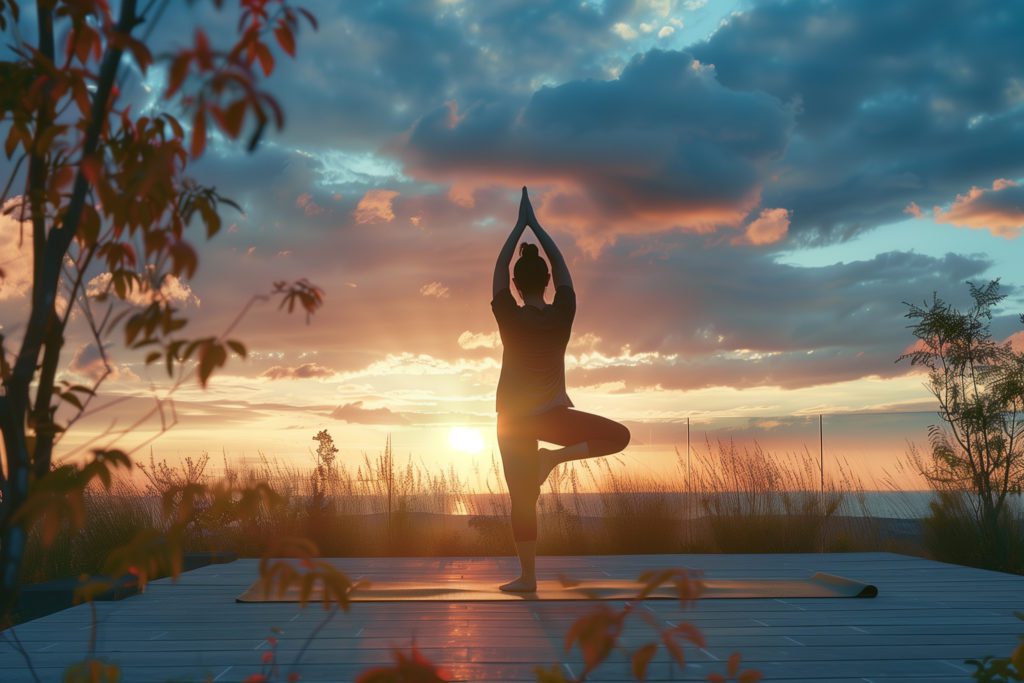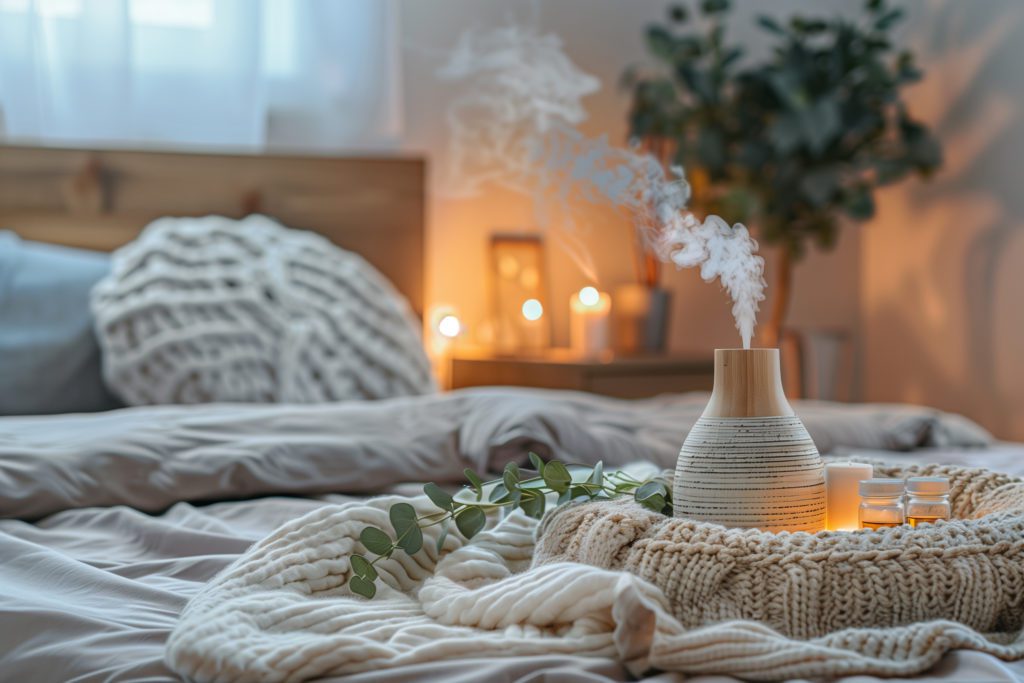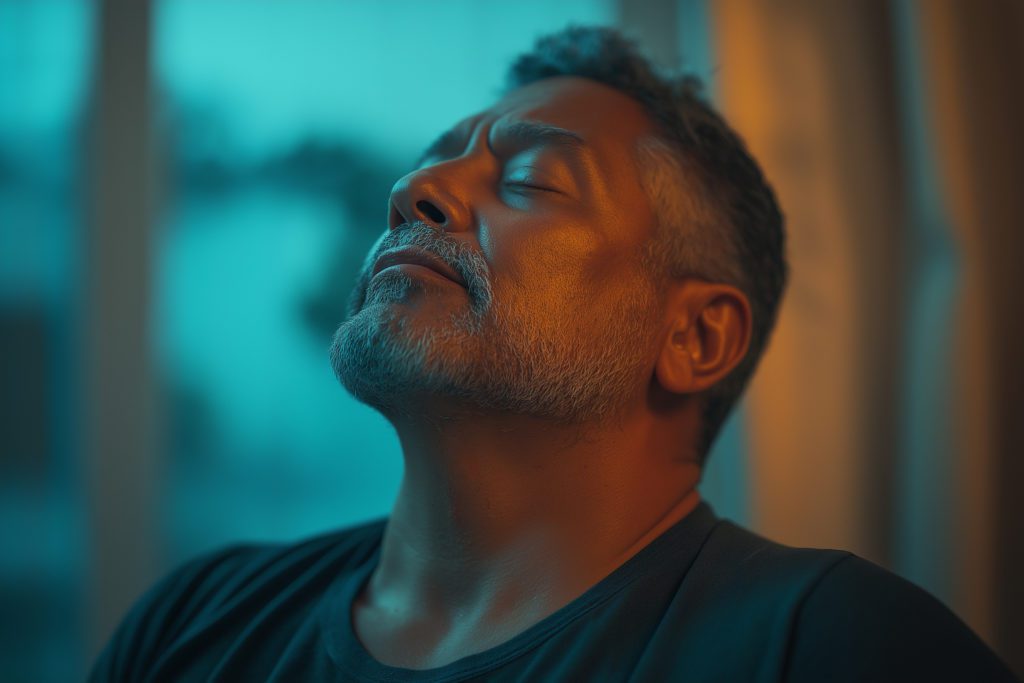
How to Sleep Better with Anxiety & Panic Attacks
Prone to panic attacks? Discover sleep hygiene tips specifically tailored to ease the symptoms of anxiety and help you reclaim restful nights.
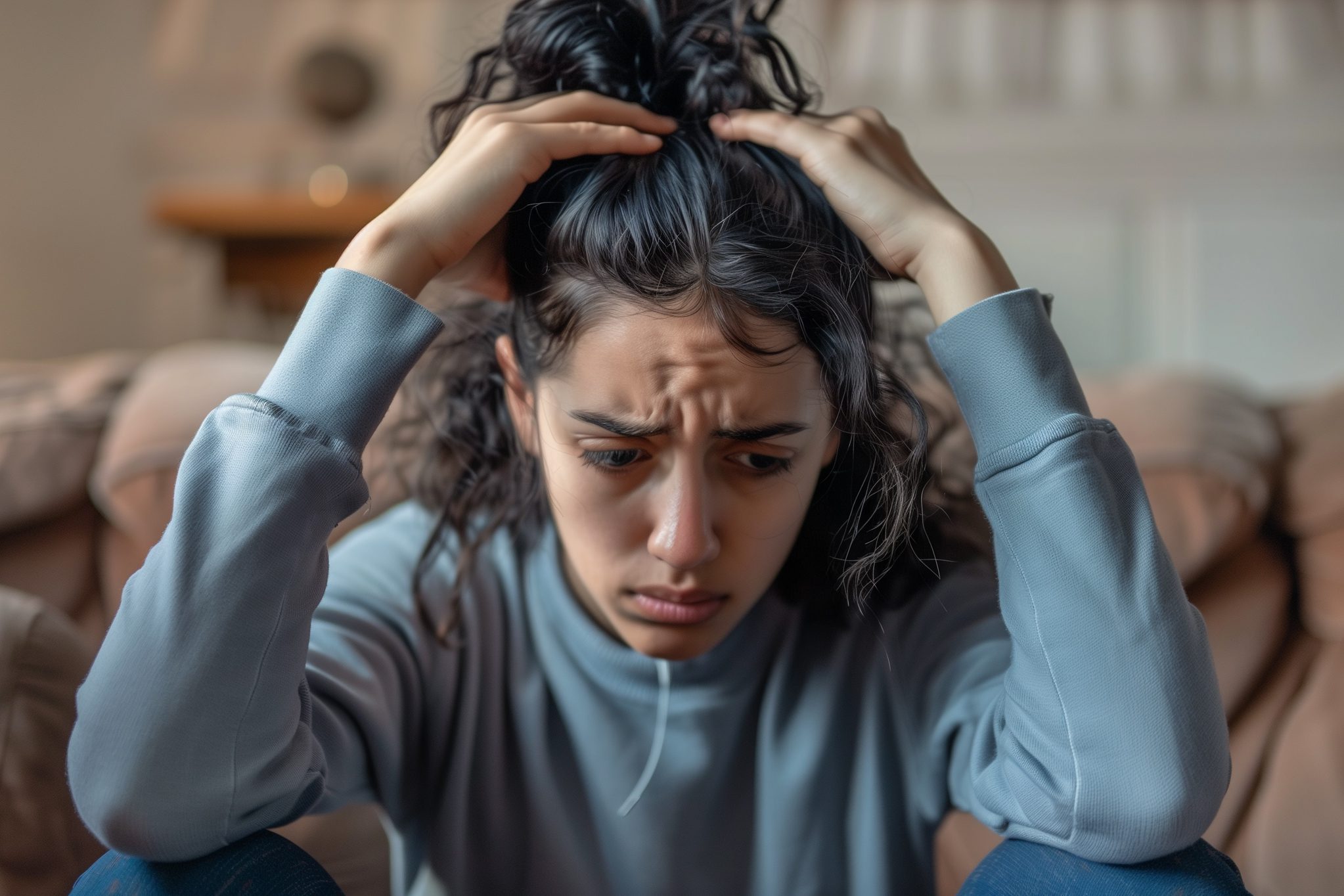
Sleep hygiene tips for those who are prone to panic attacks
Tossing and turning with thoughts racing at a mile a minute? You're not alone. For those dealing with anxiety and panic attacks, bedtime can often feel like a battleground rather than a restful retreat. Anxiety doesn't clock out when the lights turn off; instead, it can escalate, making sleep seem nearly impossible.
This guide is dedicated to unraveling how anxiety disrupts sleep and providing you with targeted sleep hygiene tips designed specifically for those who find nighttime to be a peak time for panic. Whether it's coping with nocturnal panic attacks or simply quieting an anxious mind, we're here to help you reclaim the night and turn your bedroom back into a sanctuary of calm.
The vicious cycle of panic attacks and poor sleep
Panic attacks—those intense, sudden onsets of fear or extreme discomfort—can strike at any time, day or night. During the day, these episodes might be triggered by stressors or occur unexpectedly, heightening physical and psychological responses: accelerated heart rate, shortness of breath, dizziness, and a pervasive sense of dread. These symptoms are not only alarming but also exhausting, draining your body’s energy and emotional reserves.
As night falls, the residual stress from any daytime panic attacks can linger, setting a tense stage for sleep. This heightened state of alertness keeps the nervous system engaged, making it difficult to unwind and fall asleep. For some, this anxiety doesn’t simply fade at bedtime but transforms into nocturnal panic attacks. Unlike the typical nightmares that occur during sleep, nocturnal panic attacks cause individuals to wake up in a state of panic, further disrupting sleep and making it harder to return to rest.
This disruption forms a vicious cycle: poor sleep can exacerbate anxiety, which in turn leads to more disrupted sleep. Each night of inadequate rest increases sensitivity to anxiety triggers the following day, which can increase the likelihood and frequency of panic attacks, both day and night. Breaking this cycle by managing both sleep and anxiety is essential for recovery and maintaining a balanced state of health.
Nocturnal panic attacks—the silent sleep thief
Nocturnal panic attacks sneak up during sleep, often during the REM stage when dreaming is most intense. This is when your brain is highly active, and although your body's major muscle groups are temporarily paralyzed to prevent you from acting out dreams, panic can still trigger a powerful physical response. You might suddenly wake up to a racing heart, heavy breathing, or even a feeling of suffocation, much like you might during a daytime panic attack but with a twist—these symptoms erupt out of the silence of sleep.
Unlike daytime episodes that might have identifiable triggers, nocturnal panic attacks often strike without a clear cause, leaving you feeling disoriented and scared in the dark of night. The suddenness with which these attacks disrupt sleep can significantly fracture your sleep cycle, leading to fatigue and increased anxiety during waking hours. Understanding that these attacks can occur during specific sleep phases helps in identifying strategies to stabilize sleep and reduce the likelihood of their occurrence.
How to sleep better with anxiety
If you’ve ever found yourself wrestling with sleep while your body is recovering after a panic attack, you know how tough nights can be. Developing a sleep routine that specifically addresses anxiety can help. These science-backed tips are tailored to soothe the anxious mind and enhance sleep quality:
Stick to a regular sleep schedule
Sticking to a set bedtime and wake-up time isn't just about keeping things orderly. It’s like setting your body’s internal clock, and for those with anxiety, it’s super important. Consistent sleep times help bolster mood and emotional health, combatting depression and anxiety in the long run. With that in mind, syncing your sleep with your natural rhythm sets the stage each night for easier and more restful sleep.
Use weighted blankets
Think of weighted blankets as a comforting hug when you need it the most. These blankets use what’s called Deep Pressure Stimulation (DPS) to create a sense of security that can soothe an anxious mind. The gentle, firm pressure mimics a therapeutic technique that reduces cortisol, the stress hormone, and boosts serotonin, a mood stabilizer. This combo can help you transition more smoothly into sleep, making nights less daunting.
Listen to music or soothing sounds
Ever noticed how certain sounds just calm you down? There’s real science behind it—listening to soothing sounds or music can directly influence areas in your brain that handle stress and anxiety. Whether it's the repetitive patterns of classical music, the predictable rhythms of white noise, or even the soothing sound of rain, these sounds can help quieten the noisy anxiety in your brain, making it easier to fall asleep.
Plus, there’s no need to keep YouTube running all night; sleep tracking apps like Pillow offer a variety of sleep sounds that automatically turn off after your selected duration.
Meditate and practice breathing techniques
Breathing exercises and meditation are powerful tools for dialing down anxiety at bedtime. Practices like the 4-4-4-4 or “box” breathing method can reset your stress response, helping you shift from anxiety to relaxation. Regular meditation enhances this by training your brain to disconnect from the chaotic thoughts that often lead to insomnia.
Take strategic naps
Naps aren’t just for recharging your energy—they can be an ally against anxiety-induced exhaustion. If a panic attack has drained you, a short nap can provide a much-needed break for your nervous system. Just keep it under 45 minutes to prevent grogginess and ensure it doesn't steal sleep from the night ahead.
Consume caffeine cautiously
Managing caffeine isn’t just about avoiding jitters; it’s about keeping your night calm. Anxiety can make you more sensitive to caffeine, disrupting sleep even if consumed early in the day. Try to limit caffeine and notice how your body and mind respond, especially in the evenings.
Journal before bed
Pouring thoughts into a journal—casually known as a “brain dump”—can transfer the weight of your worries off your shoulders and onto the page. It’s a proven method to lower stress and clear the mind before sleep, providing a clean mental slate that can prevent racing thoughts from keeping you awake.
Create a relaxing bedtime ritual
Establish a pre-sleep ritual that signals your body it's time to wind down. The trick to making it actually work? Doing it consistently. Whether it’s a warm bath, gentle stretching, or a few minutes of reading, find what cues relaxation for you and make it a consistent precursor to bedtime.
Seek professional advice
If you're finding it tough to manage anxiety and sleep issues on your own, it might be time to chat with a professional. Cognitive Behavioral Therapy (CBT) may help you tackle those troublesome thoughts that keep you up at night by teaching you how to shift your mindset.
For some, medication like SSRIs can also be a helpful boost. These can smooth out the anxiety peaks by balancing your brain's chemistry. It's all about finding what works for you, so having a conversation with your doctor or therapist can really help set you on the right path to better sleep and less anxiety.
Ready to take control of your nighttime anxiety?
We’ve dug deep into how anxiety intertwines with sleep, especially when panic attacks creep in. Tweaking your sleep habits can be a game changer—not just for rest, but for managing anxiety too. From setting a stable sleep schedule to embracing techniques like meditation and investing in a weighted blanket, each strategy is about attaining a better night's rest. So, try out these adjustments, keep track of what works with a sleep tracker, and don’t shy away from seeking professional guidance if needed.

Written by
Georgia Austin
Professionally trained copywriter, editor, and content marketing strategist with over 7 years of experience—working with brands like Nike, Siemens, Toshiba, Tommy Hilfiger, Culture Trip, and Klook.
Download Pillow
Get help
Press & News
Legal
Connect
X (Twitter)
Company
Copyright © Neybox Digital Ltd.
